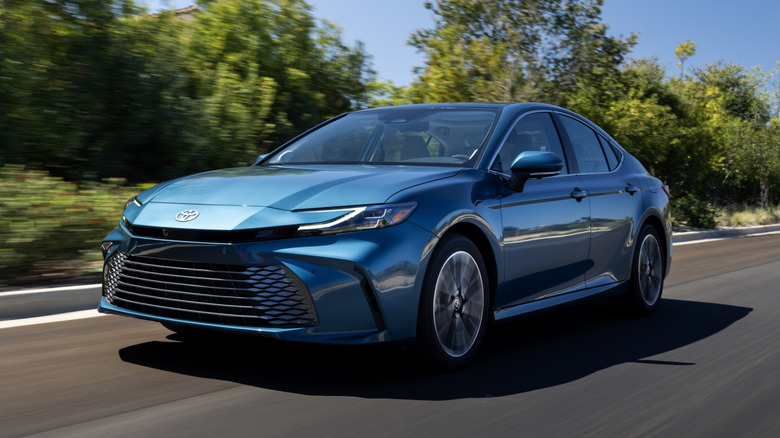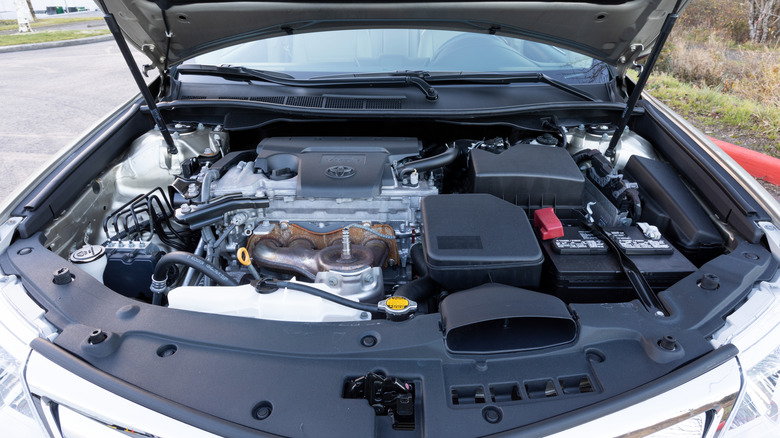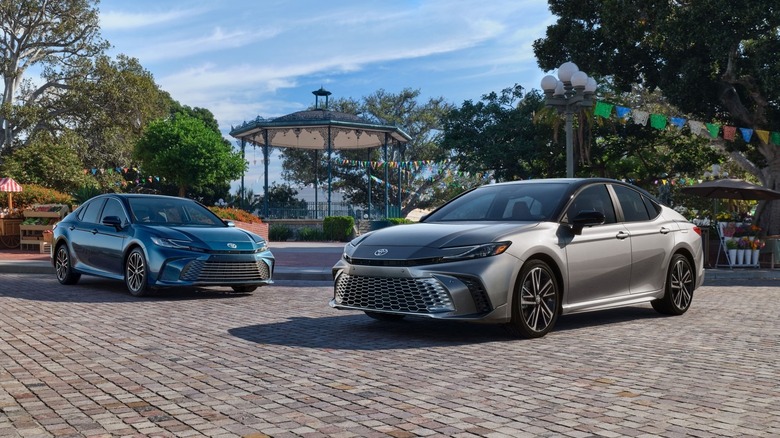Common Problems You May Experience With The Toyota Camry (According To Owners)
The Toyota Camry is widely considered one of the best used Toyota models you can buy. Such reputation is further highlighted by Car and Driver that listed the Camry as the 2025 best-selling sedan in the U.S. Be that as it may, no car is ever truly perfect. So, what are the common problems you may experience with the Toyota Camry?
According to owners, the eighth generation (2018 to 2024) Camry is a highly reliable car, but earlier models are prone to occasional transmission problems. Drivers also noted problems with warped brake rotors and overly-scratchy paint. The seventh generation (2012 to 2017) of the Toyota Camry is susceptible to problems with wandering steering, torque converter issues, and excessive oil consumption. The latest generation of the Camry was introduced in late 2024.
However, early customers are already complaining about burning oil, even after only a few hundred miles. The general consensus between owners is that, with proper maintenance, the Camry will last a long time. Over on Reddit, one owner even said that the "Camry is one of the most reliable machines on the planet." Here's everything you need to know about the Camry and whether it truly deserves its best-selling status.
Toyota Camry biggest paint points
As outlined in the intro, multiple generations of the Toyota Camry are prone to transmission issues, most of which are tied to harshness, delays, and hesitations. According to owners, the 2018 Camry appears to experience these issues more than newer models. The 2007 to 2011 sixth generation of the Camry is the worst of all with the highest number of complaints overall. Excessive oil consumption also seems to be a commonly brought up problem by owners across multiple generations of the Camry.
This has even led Toyota to issue the T-SB-0094-11 Technical Service Bulletin (TSB) in 2011 and the T-SB-0169-16 TSB in 2016. Issues with the digital display unit have also prompted one of the biggest recalls in Toyota's recent history. It includes upwards of 500,000 vehicles, notably the Camry, the RAV4, and the 4Runner. An illuminated check engine light due to a failed oxygen sensor is also one of the most widely reported issues with earlier Camry models.
Toyota Camry reliability highlights
The engine itself is one of the main reasons why the Camry is so reliable. Thanks to the company's "Toyota Production System" philosophy, these engines are built and designed with continuous improvements across multiple generations. Unlike many other automakers out there, Toyota does not focus on power and performance as much as it does on reliability and long-term dependability. This leaves lots of headroom to make its engines more durable since they are able to endure a lot more stress.
For instance, the 2.0-liter and the 2.5-liter 4-cylinder engines in the Camry are regarded by many as some of the most reliable engines out there. Compared to some competitors, the Camry's electronics and infotainment systems can often be viewed as a bit too conservative, but that lack of extreme complexity does aid it when it comes to reliability. Moreover, the Camry also uses a front-wheel-drive unibody construction. It's straightforward, proven, and has been continuously updated with each new generation.
Toyota has also been the leader in hybrid technologies for decades, with the Toyota Prius pioneering the way for future innovations. Toyota's global presence also ensures parts are readily available, simple, and easy to replace in countless service centers across the nation. Owners have also voted the 2024 Toyota Camry as the most reliable midsize car in J.D. Power's 2025 Vehicle Dependability Study, and on Cars.com, more than 90% of owners recommend it.


